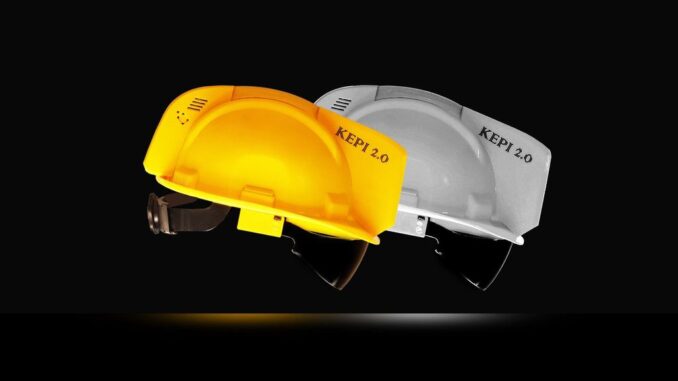
HYDERABAD, India — With an aim to improve the working conditions of industrial workers, an Indian company is building helmets with an inbuilt air-conditioner.
Speaking about the innovative project, Kaustabh Kaundinya, Co-Founder and Chief Executive Officer of Jarsh Innovation that makes the AC helmets, said that the idea for the innovative product stuck when he and his co-founders were they were on a bike trip during one summer.
“Ours is a 4-year-old company,” said Kaundinya.
“This idea came when we were traveling on bikes. We faced a lot of problems due to heat issues. We researched about the product online but couldn’t find any. That is when we decided to develop a cooling mechanism inside a helmet,”
Elaborating further on types of helmets made by the company, the CEO said the AC helmets are available in four different models.
“Kepi 2.0 (the helmet) comes with both cooling and heating modes catering to a range of temperatures. Four ergonomically designed vents ensure uniform cooling/warming over your head by up to 15 °C [36° F],” the company said.
“No matter the outdoor temperature, stay comfortable and productivity, anywhere, anytime.”
“All of them work on the same principle but focused on different customers within the industry,” Kaundinya said.
“The first helmet is model E with a battery life of two hours for engineers who have to wear helmets for a short while,” Kaundinya said.
The model E helmet weighs around 800 grams, and the battery run time is 2 hours.
“Kepi 2.0 Model — E is designed sleek & stylish for the top management and other visitors like inspectors & customers,” the company said in a blog.
“It runs on an in-built rechargeable battery which provides 2 hours of non-stop cooling & heating capabilities to the user.”
“The second Model S is designed for skilled and semi-skilled technicians and comes with an external battery that runs for 10 hours,” Kaundinya said.
The blog said that the Kepi 2.0 Model — S is designed with an external battery pack to help the users with weight distributed across the body instead of the head.
“The external battery feature also allows companies to use same AC helmets across multiple shifts, without purchasing multiple helmets and by simply purchasing multiple batteries. The battery pack is worn on the waist and is connected by a wire to the helmet,” the blog said.
“It is known to increase workforce efficiency by up to 15 percent.”
The company said that the Kepi 2.0 Model — C is designed for machine operators with the helmet connected to the machine or any other power source with a specially designed connector.
“It is known to increase operator efficiency by up to 20 percent,” said Kaundinya.
“The third helmet is designed especially for welders with air conditioning inside it. We have a fourth one which is used by heavy machine users like JCB. In fact, we are partnered with JCB for the sale of the product.”
The CEO said that his company will soon supply the helmets to South Western Railways and is looking forward to expanding their business in the Middle East.
The company’s Co-Founder, Anand Kumar, said that helmets contain a fan in the cooling system, which sucks the atmosphere air and pumps it into the cooling system at the front of the helmets.
“Cooling system drops the air temperature and send into the helmet through a specially designed channel called Air distribution system. It is a four-way vent flow,” Kumar said.
“One towards the face, two towards ears, and at the back.”
The company faced some financial woes during the Covid-19 pandemic, but with economic activities restarting, it is also gradually getting back on track.
The company was born in 2016 and was founded by three young student entrepreneurs. The firm also runs another vertical, Jarsh Services, which is an end-to-end R&D Consultancy Centre.
(With inputs from ANI)
Edited by Vaibhav Pawar and Praveen Pramod Tewari
The post Beat The Heat: Indian Company Making Air Conditioning Helmets For Industrial Workers appeared first on Zenger News.
